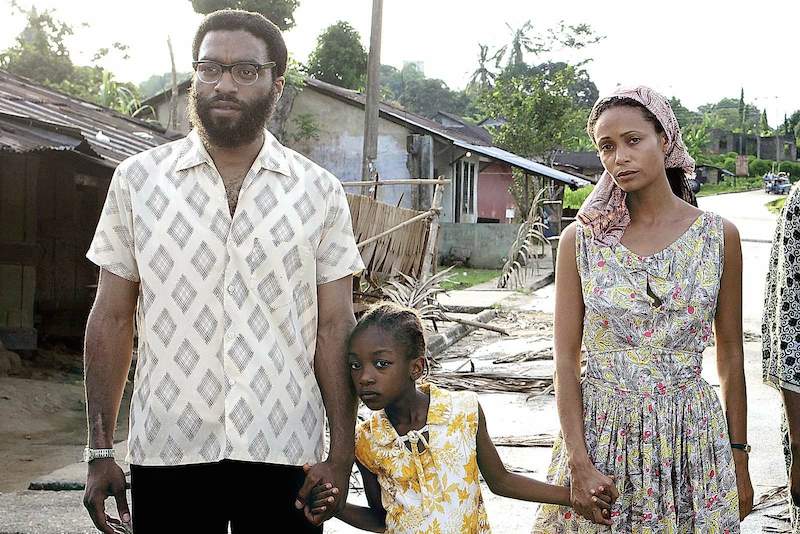I’m not one of those who automatically think the book’s better than the film. Efficiency is a good thing and if a film can successfully cram 500 pages into two hours, it’s to be applauded. We all have things to do. So, I was looking forward to watching Thandie Newton and Chiwetel Ejiofor in a refresher course on Chimamanda Ngozi Adichie’s Orange Prize winner, Half of a Yellow Sun.
The film, set in the late 1960s in Nigeria during the civil war, follows two twin sisters from a wealthy Igbo family. Olanna is headstrong and principled (a suitably brittle Newton) while Kainene is sassy and practical (a sexy Anika Noni Rose). The former ends up with an idealistic academic Odenigbo, played by Ejiofor, and is shuttled around Nigeria as they flee the spreading turmoil. The latter falls in love with a white journalist. At first she takes charge of her father’s business but then devotes her efforts to the management of a refugee camp in the short-lived state of Biafra.
When Newton agreed to play Olanna, the director Biyi Bandele must have thanked his lucky stars. And when Ejiofor was Oscar-nominated, it must have seemed too good to be true. Hardly – while Newton is one of the most unlikable actors on screen, Ejiofor is one of the more boring. As far as I can make out, his default mode is resignation tinged with sadness. Perfect for when you’re playing a slave but mystifying when you’re meant to be a sexy revolutionary. Newton is perhaps a little more interesting to watch but I was completely distracted by her uncanny likeness to Gwyneth Paltrow. In fact the film is mostly about Olanna and Odenigbo’s conscious coupling and conscious uncoupling.
The novel is good: politically and historically illuminating but character-driven, with tremendous set pieces. I would be a bore and tell you to go to the library instead of the cinema but for this: the sister Anika Noni Rose is a delight and you wish she was in every scene. Adichie loves to write about women. In fact her TED talk on feminism was so empowering – and so anodyne – that Beyoncé even decided to sample it on a track from her new album. So it’s not a surprise the novel revolves around the sisters’ relationship but on film this feels even more special: you so rarely see two women – and black women too! – talking sensibly, and not about men, on screen. Even better, they are extremely well dressed. They negotiate the civil war clad in a tribal version of the Boden catalogue.
The film is average; the cinematography is pedestrian and the structure is linear without the flash backs or changes of perspective that gave the novel a backbone. Half of Yellow Sun is exactly like The Butler or Long Walk To Freedom: a slog better suited to TV which only reached the silver screen because of its stars. It’s just a shame they weren’t Idris Elba or Oprah Winfrey.
The name that’s the film’s big draw is, funnily enough, Frederic Forsyth. Clips of him as BBC foreign correspondent – before he was forced to resign for refusing to report that the conflict would only last a fortnight rather than the three years with over a million dead – are a welcome gasp of reality during the melodrama.






Comments